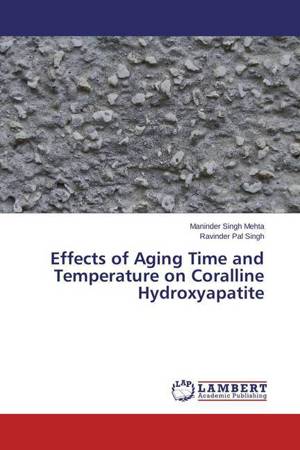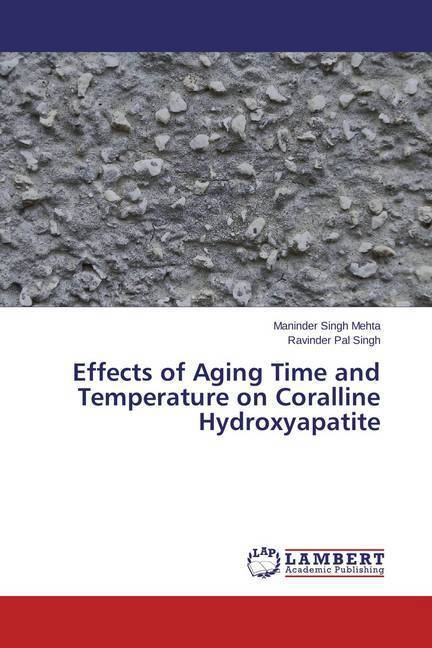
- Afhalen na 1 uur in een winkel met voorraad
- Gratis thuislevering in België vanaf € 30
- Ruim aanbod met 7 miljoen producten
- Afhalen na 1 uur in een winkel met voorraad
- Gratis thuislevering in België vanaf € 30
- Ruim aanbod met 7 miljoen producten
Zoeken
Effects of Aging Time and Temperature on Coralline Hydroxyapatite
Maninder Singh Mehta, Ravinder Pal Singh
Paperback | Engels
€ 60,95
+ 121 punten
Omschrijving
Hydroxyapatite (HAP) is a major mineral constituent of vertebrate bones and teeth. Corals may be used for substitution purposes in biomaterials having many biomedical applications. Corals (sea-shells) of class "Gonipora" having characteristics of natural micro-porous structure were used as a raw material in present investigation. A simple method of converting the corals into HAP powder using wet precipitation method has been developed. Thermogravimetric Analysis (TGA), X-Ray Diffraction (XRD), Fourier Transform Infrared Spectroscopy (FTIR) and Scanning Electron Microscopy (SEM) were employed to characterize the synthetic nano powders. Aging effect was studied for different aging times at different aging temperatures. Synthetic powders were sintered at different temperatures as revealed by TGA technique. At an aging time of 25 C and aging time of 24 hours, percentage of HAP was found to be maximum and hence concluded to be the optimum aging time and aging temperature for HAP synthesis using corals as raw ingredient.
Specificaties
Betrokkenen
- Auteur(s):
- Uitgeverij:
Inhoud
- Aantal bladzijden:
- 92
- Taal:
- Engels
Eigenschappen
- Productcode (EAN):
- 9783659556029
- Verschijningsdatum:
- 3/12/2014
- Uitvoering:
- Paperback
- Afmetingen:
- 150 mm x 220 mm
- Gewicht:
- 145 g

Alleen bij Standaard Boekhandel
+ 121 punten op je klantenkaart van Standaard Boekhandel
Beoordelingen
We publiceren alleen reviews die voldoen aan de voorwaarden voor reviews. Bekijk onze voorwaarden voor reviews.








